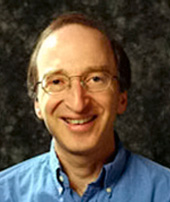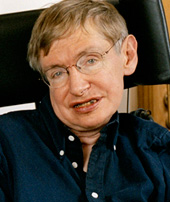|
|
SPEAKERS
Lord Rees of Ludlow
(formerly Professor Sir Martin Rees)
Lord Rees was a student of the late Dennis Sciama who also supervised Stephen Hawking. He is currently Astronomer Royal and Master of Trinity College, Cambridge. He was President of the Royal Society from 2005-10. Martin has received many honours for his contributions to relativistic astrophysics, black holes and cosmology. One of his most noted achievements was his realization that the power house of quasars is a massive rotating black hole accreting dust and gas and emitting enormous collimated radio beams stretching across the sky. In addition to his technical scientific work, Martin is well known as a popularizer of science, especially astronomy, and he has been very active in the British Association for the Advancement of Science. He is the author of a number of popular books on science, including Our Cosmic Habitat, Just Six Numbers and Our Final Century.

Professor Saul Perlmutter
(Nobel Laureate in Physics, 2011)
Saul Perlmutter did his undergraduate degree at Harvard University before completing his PhD at the University of California at Berkeley, where he has spent his career ever since. Since 1988 he has led the Supernova Cosmology Project, the original aim of which was to measure the slowing-down of the expansion of the universe at large distances due to gravitation. A team led by Saul measured the distances to galaxies using Type Ia supernovae, which all have similar intrinsic brightnesses and therefore make excellent 'standard candles' for measuring extragalactic distances, much as Cepheid variable stars are used for measuring the distances to galaxies closer to home. Saul's team developed both wide-field imaging methods and sophisticated data analysis techniques, first to discover as many supernovae as possible and then to follow up the discoveries with analysis of the supernova types and measurements of their distances. In 1998 they astonished the scientific world with evidence that instead of slowing down, the expansion of the universe is actually speeding up at large distances. Around the same time, the same resultrs were obtained by Brian P Schmidt and Adam G Riess and the work has been consolidated ever since. The discovery implies that much of the universe is composed of a so-far unexplained phenomenon named 'dark energy', which theoreticians are now trying to unravel. For this profound discovery, Saul Perlmutter has been awarded, together with Schmidt and Riess, the 2011 Nobel Prize in Physics.
Professor Kip Thorne
Kip Thorne was a student of the late John Wheeler, the renowned Princeton physicist who coined the term 'black hole'. He has worked for most of his professional career at Caltech, where he heads one of the world's leading groups working on relativistic astrophysics. Kip and fellow Wheeler student Charles Misner are the authors of the extremely influential textbook Gravitation, which has become the bible of those wanting to learn and apply general relativity to astrophysics. Kip's research has covered almost all aspects of the subject from the accretion discs around black holes to the X-rays they emit. He has for many years been a forceful and effective advocate of LIGO, the project to detect gravitational radiation using large-scale laser interferometers. Apart from technical papers and books Kip has written a highly successful popular book, Black Holes and Time Warps: Einstein's Outrageous Legacy.

Professor Stephen Hawking
Born in 1942, Stephen Hawking completed his first degree at Oxford, before doing a PhD at Cambridge under the late Dennis Sciama. After gaining his PhD he became first a Research Fellow and later on a Professorial Fellow at Gonville and Caius College, Cambridge. After leaving the Institute of Astronomy in 1973, Stephen came to the Department of Applied Mathematics and Theoretical Physics (DAMTP), and held the post of Lucasian Professor of Mathematics from 1979 until 2009. The Lucasian Professorship was founded in 1663 and then held from 1669 by Isaac Newton. Stephen Hawking is currently the Director of Research at the Centre for Theoretical Cosmology, at DAMTP in Cambridge. He has worked on the basic laws which govern the universe. With Roger Penrose he showed that Einstein's General Theory of Relativity implied that space and time would have a beginning in the Big Bang and an end in black holes. These results indicated that it was necessary to unify General Relativity with Quantum Theory. One consequence of such a unification that he discovered was that black holes should not be completely black, but rather should emit radiation and eventually evaporate and disappear. Another conjecture is that the universe has no edge or boundary in imaginary time. His many publications include The Large Scale Structure of Spacetime, A Brief History of Time, Black Holes and Baby Universes and Other Essays, The Universe in a Nutshell, and most recently in 2010, The Grand Design.
Return to the Home Page
|
|















